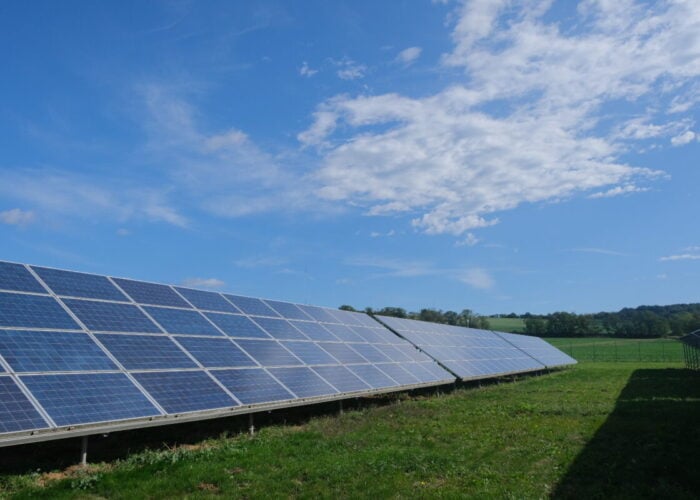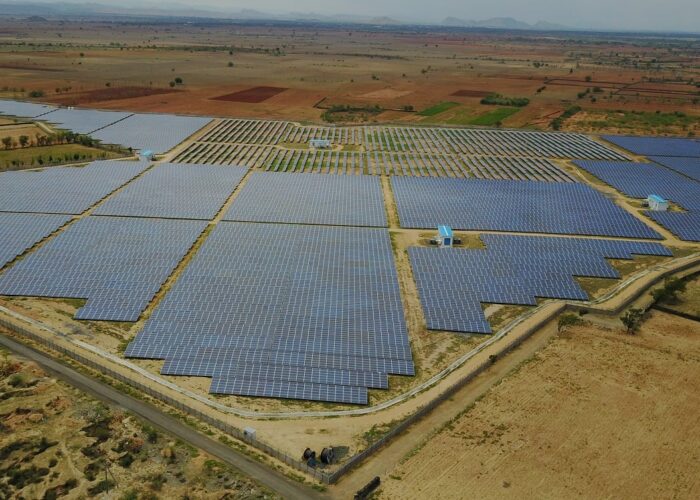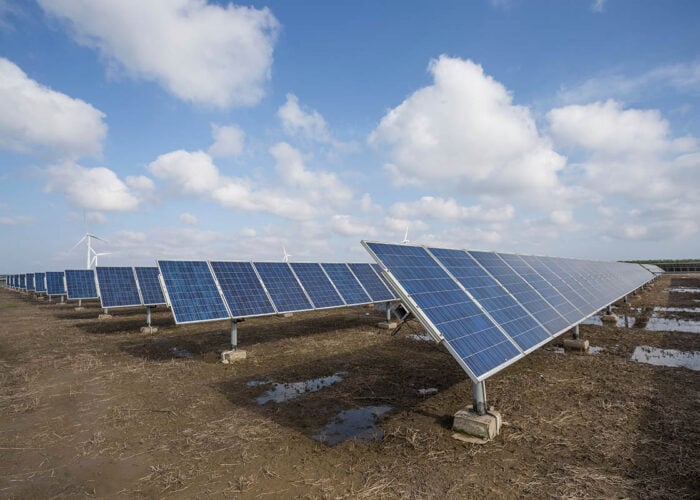
Saudi Arabia has awarded the 2GW Al Sadawi solar project to a consortium led by UAE state-owned developer Masdar, and signed a power purchase agreement (PPA) to acquire electricity generated at the project.
The project is the largest facility tendered in the fifth round of the Saudi Arabian National Renewable Energy Programme (NREP), which was announced last month, and sought to allocated 3.6GW of new solar power capacity. Masdar expects to commission the Al Sadawi project in the second quarter of 2027.
Unlock unlimited access for 12 whole months of distinctive global analysis
Photovoltaics International is now included.
- Regular insight and analysis of the industry’s biggest developments
- In-depth interviews with the industry’s leading figures
- Unlimited digital access to the PV Tech Power journal catalogue
- Unlimited digital access to the Photovoltaics International journal catalogue
- Access to more than 1,000 technical papers
- Discounts on Solar Media’s portfolio of events, in-person and virtual
The Masdar consortium, which includes GD Power of China and the Korea Electric Power Corporation (KEPCO) was one of two groups shortlisted to be managers of the project, and with the award of this project Masdar will look to expand its presence in Saudi Arabia. The company has already built the 300MW South Jeddah Noor solar project, and has the 1.1GW Al Henakiyah and 250MW AMAALA solar-plus-storage project in its pipeline.
As part of the Al Sadawi announcement, the Saudi Power Procurement Company, a state-owned enterprise, signed a PPA with the Masdar consortium. Masdar has previously collaborated with the Saudi Power Procurement Company, having signed a PPA for the South Jeddah Noor facility, and the Saudi government has now signed agreements for 25 renewable energy projects, with a combined capacity of 23GW.
The deals are Saudi Arabia’s latest investment in the renewable power space, as it looks to reach its ‘Vision 2030’ goal of generating half of its electricity from renewable energy by the end of the decade. This will likely be a tall order for the country, with the International Energy Agency (IEA) reporting that, in 2022, oil and natural gas accounted for 99.4% of the country’s domestic electricity generation.
The Saudi Power Procurement Company also announced a number of PPAs for fossil fuel projects, including the Rumah and Nairyah thermal plants. While these projects could use carbon capture and storage technology, they have a combined capacity of 7.2GW, almost four times as much as the capacity of the Al Sadawi project, raising questions about the government’s ability to meet its 2030 climate goals.
The chairman of Masdar, Sultan Ahmed Al-Jaber, is also the head of the Abu Dhabi National Oil Company (ADNOC) and the Emirati minister of industry and advanced technology.







